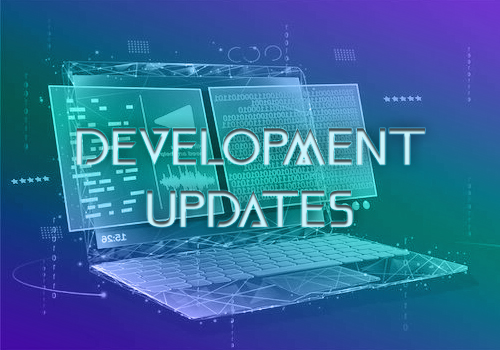Dev Log: Expanding AMS and Advancing the Compiler
 Building, testing, revising, and repeating- it is all part of the process. Some weeks it feels nonstop, and it can definitely get exhausting, but it’s necessary. Laying down a strong foundation now means we can focus on fine-tuning and polish later without having to rework core systems. Taking the time to get these pieces right early on saves time, effort, and headaches as we scale and add more features. This past month was a good example of that principle in action.
Building, testing, revising, and repeating- it is all part of the process. Some weeks it feels nonstop, and it can definitely get exhausting, but it’s necessary. Laying down a strong foundation now means we can focus on fine-tuning and polish later without having to rework core systems. Taking the time to get these pieces right early on saves time, effort, and headaches as we scale and add more features. This past month was a good example of that principle in action.
AMS Group & Permission System Finalized
We wrapped up testing and final integration of the updated Account Management System (AMS), which now includes a fully working set of user groups and internal permissions. We also finalized the default permission structure and completed both the secure server-side database and the client-side implementation.
Behind the scenes, we spent a good amount of time syncing the AMS database across our secure server, the Apex Engine website, and the engine itself. With a unified schema in place, user and group data now stays consistent and secure across all access points, whether you’re managing your team online or directly from inside Apex.
The following permission groups are now fully active in AMS:
- Licensee (World Owner)
- World Admin
- Dev-User (Client)
- Programmer
- ScriptEditor
- Artist
- FX
- Audio
- Builder
- UI/UX
- Manager
- QA
- Tester
The UI/UX is already working inside the prototype. Next, we’ll be refining the layout to make it easier to use for non-engineers, a cleaner views, improved navigation, and intuitive role assignment. This update gives world owners more control over access and collaboration and lays the groundwork for scalable team management as we move toward beta.
Compiler Progress & Why It Matters
In parallel with AMS, we continued making solid progress on our custom scripting compiler. This system is central to Apex Engine’s real-time scripting capabilities, allowing developers to code, test, and see results without leaving the engine.
Why this matters:
- Live script testing within the editor
- Optimized, fast runtime execution
- Support for Apex-specific scripting features
- Safe real-time collaboration on scripts
- Foundation for future AI-assisted development
Current focus areas include:
- Parsing logic and syntax tree generation
- Runtime safety, isolation, and sandboxing
- Real-time error logging and feedback
- Multi-threaded execution
- Compatibility with the rendering pipeline and asset systems
- A modular API for future scripting tools
This compiler will tie directly into our build system, giving developers the tools to control how scripts behave across testing, deployment, and production environments.
Website Development
While we’ve been busy under the hood, we’ve also made good progress on the Apex website in preparation for the Apex Community Hub launch. This includes far more than just community tools, we are building a full support ecosystem to serve creators and teams of all sizes.
Currently in development:
- A new support knowledge base for documentation, FAQs, and troubleshooting
- A flexible wiki system for guides, tutorials, and internal documentation
- An integrated ticket system that connects the website and Apex Engine
The wiki system is a major focus. It’s a big component, but one we know is worth the effort. We’re making it accessible both online and directly inside the engine, so teams and solo devs alike can access or contribute to documentation without interrupting their workflow. From world-specific guides to system references, this tool will grow and adapt alongside every project, making it easier to collaborate and build smarter.
Together, these systems are designed to streamline support, reduce response times, and let both users and staff track, resolve, and document issues efficiently. With the engine, website, and support tools all working together, we’re creating a smoother, more unified experience from start to finish.
A huge thank you to our early community members who’ve been testing, reviewing, and even proofreading these tools while we build them. Your feedback is shaping Apex Engine in real time, and I’m incredibly grateful. I’m looking forward to seeing even more of you join us in the months ahead as we open the doors wider. Your support keeps this moving.
Stay tuned because June and July has plenty more in store.